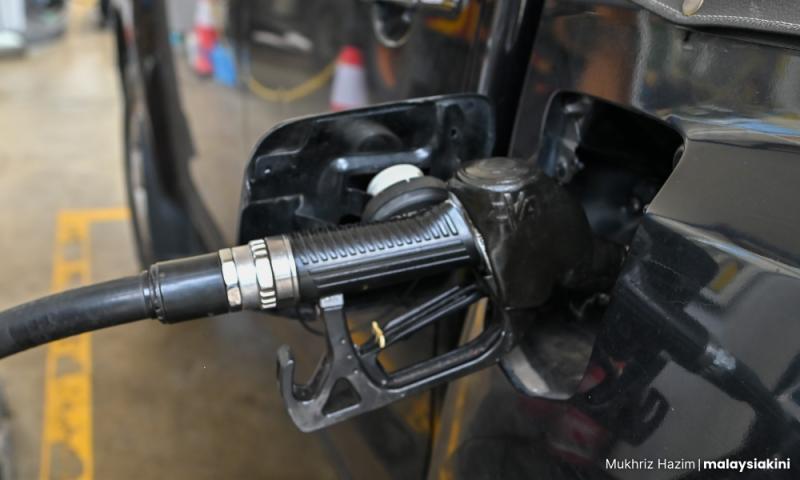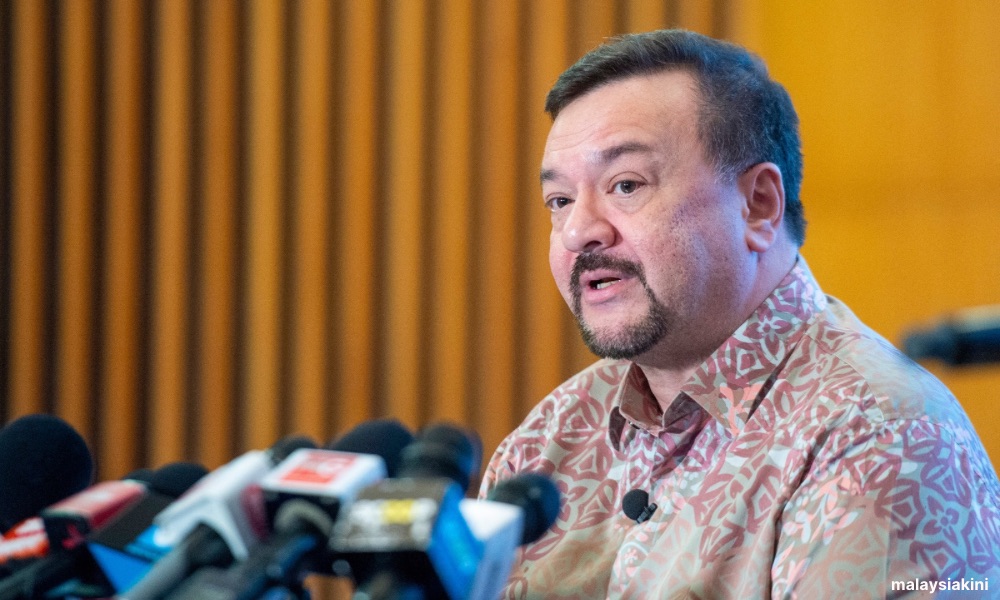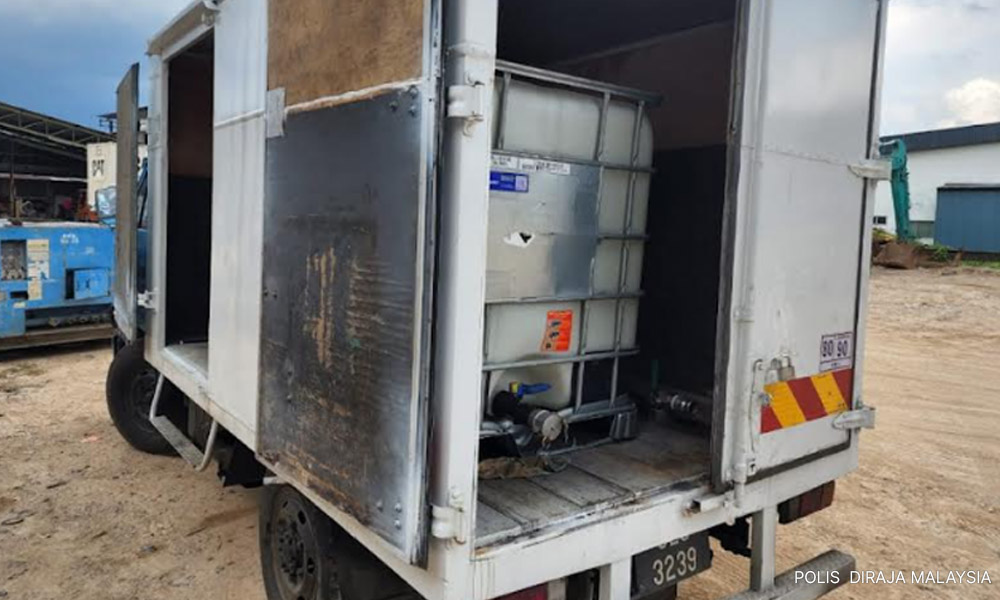
P Gunasegaram
Published: Jun 11, 2024
COMMENT | Indications are that the diesel targeted subsidies announced Sunday have not been fully thought through yet, with a headline-grabbing over 50 percent rise in diesel prices to RM3.35 per litre at the pump, an RM1.20 jump from just RM2.15 previously.
That figure of over 50 percent alone screams “inflation” loud and clear although a careful examination indicates it may not be all that because of inbuilt mechanisms already in place. But inflation is also about expectations - if enough people expect prices to rise, they will.
It would have been more prudent for a gradual price increase, say a couple of sen every week for just over a year to mitigate this large jump overnight and thereby reduce inflationary expectations.
Subsidies are a double-edged sword, cutting both ways. When they are unstructured and cover everyone - the blanket subsidies - they provide benefits for everyone irrespective of income encouraging wastage and giving more to those who can afford to spend and consume.
Any attempts to restructure this so that subsidies will benefit only those who need to be helped and remain for essential services so prices are kept in check - targeted subsidies - are fraught with the problem of leakages and profiteering.
Such is the problem that faces the government over its first baby steps to rationalise diesel subsidies, which are destined to be the forerunner for other targeted fuel subsidies that will shortly cover RON95 and 97 as well.
But by introducing other measures, it may be possible to close off further leakages and thereby increase the amounts that flow into the government coffers as a result of subsidy rationalisation.
Scale of problem
Let’s look at the scale of the subsidies problem first. According to Finance Minister II Amir Hamzah Azizan, total subsidies last year amounted to RM70 billion, down from RM81 billion in 2022. Reports say fuel subsidies account for as much as RM50 billion of it or some 70 percent of the total.
Published: Jun 11, 2024
COMMENT | Indications are that the diesel targeted subsidies announced Sunday have not been fully thought through yet, with a headline-grabbing over 50 percent rise in diesel prices to RM3.35 per litre at the pump, an RM1.20 jump from just RM2.15 previously.
That figure of over 50 percent alone screams “inflation” loud and clear although a careful examination indicates it may not be all that because of inbuilt mechanisms already in place. But inflation is also about expectations - if enough people expect prices to rise, they will.
It would have been more prudent for a gradual price increase, say a couple of sen every week for just over a year to mitigate this large jump overnight and thereby reduce inflationary expectations.
Subsidies are a double-edged sword, cutting both ways. When they are unstructured and cover everyone - the blanket subsidies - they provide benefits for everyone irrespective of income encouraging wastage and giving more to those who can afford to spend and consume.
Any attempts to restructure this so that subsidies will benefit only those who need to be helped and remain for essential services so prices are kept in check - targeted subsidies - are fraught with the problem of leakages and profiteering.
Such is the problem that faces the government over its first baby steps to rationalise diesel subsidies, which are destined to be the forerunner for other targeted fuel subsidies that will shortly cover RON95 and 97 as well.
But by introducing other measures, it may be possible to close off further leakages and thereby increase the amounts that flow into the government coffers as a result of subsidy rationalisation.
Scale of problem
Let’s look at the scale of the subsidies problem first. According to Finance Minister II Amir Hamzah Azizan, total subsidies last year amounted to RM70 billion, down from RM81 billion in 2022. Reports say fuel subsidies account for as much as RM50 billion of it or some 70 percent of the total.

Finance Minister II Amir Hamzah Azizan
One concerning figure Amir disclosed was that diesel subsidies, which amounted to a mere RM1.4 billion in 2019, leapt 10 times to RM14 billion last year, far exceeding any increase in demand or rise in prices that may have taken place.
The difference between the two figures, including some adjustments for an increase in demand and a rise in prices, probably reflects the amount of leakage through the subsidies.
This leakage of perhaps some RM10 billion is caused by those obtaining the subsidised diesel not using it but selling it to others, either locally or abroad for higher prices.
Amir estimates that as a result of these new measures implemented, the government hopes to recover some RM4 billion which will be available for spending by the government. It implies that there will still be some leakage of about RM6 billion (RM10 billion - RM4 billion).
Not all leakages are being closed off even with the new arrangement. The culprit may well be in the processes for subsidies. Currently, for non-fleet consumers, a system is in place where 30,000 people will be given a subsidy of RM200 per month through a process of registration for vehicles.
That may be too high for many who may not travel the necessary distance in a month to get that subsidy. Still, the numbers are relatively small, amounting to RM6 million a month or RM72 million a year overall right now.
The more likely leakage is from fleet operators who are given a special price compared to other diesel users. There has to be potential for abuse here and the figures do indicate that there is. This should be the focus of government controls.
The better way to control this is for fleet operators to pay the full price at the pump for diesel and then use proper documentation in terms of diesel bought and used verified later from the audited accounts of the business.
If the accounting does not tally, then impose huge penalties. That would discourage anyone from buying subsidised diesel and reselling them locally which they can do now with little or no government controls.
Diesel smuggling
Also, diesel can be smuggled out. There is much incentive to smuggle diesel across borders or at sea with Thai prices still being significantly higher at around RM4.20 per litre and Singapore prices being at around RM9.15 per litre.
The difference between the two figures, including some adjustments for an increase in demand and a rise in prices, probably reflects the amount of leakage through the subsidies.
This leakage of perhaps some RM10 billion is caused by those obtaining the subsidised diesel not using it but selling it to others, either locally or abroad for higher prices.
Amir estimates that as a result of these new measures implemented, the government hopes to recover some RM4 billion which will be available for spending by the government. It implies that there will still be some leakage of about RM6 billion (RM10 billion - RM4 billion).
Not all leakages are being closed off even with the new arrangement. The culprit may well be in the processes for subsidies. Currently, for non-fleet consumers, a system is in place where 30,000 people will be given a subsidy of RM200 per month through a process of registration for vehicles.
That may be too high for many who may not travel the necessary distance in a month to get that subsidy. Still, the numbers are relatively small, amounting to RM6 million a month or RM72 million a year overall right now.
The more likely leakage is from fleet operators who are given a special price compared to other diesel users. There has to be potential for abuse here and the figures do indicate that there is. This should be the focus of government controls.
The better way to control this is for fleet operators to pay the full price at the pump for diesel and then use proper documentation in terms of diesel bought and used verified later from the audited accounts of the business.
If the accounting does not tally, then impose huge penalties. That would discourage anyone from buying subsidised diesel and reselling them locally which they can do now with little or no government controls.
Diesel smuggling
Also, diesel can be smuggled out. There is much incentive to smuggle diesel across borders or at sea with Thai prices still being significantly higher at around RM4.20 per litre and Singapore prices being at around RM9.15 per litre.

Police busted a diesel smuggling operation in Johor in 2022
While the new price of RM3.35 has narrowed the differential, there is a significant difference which can be exploited by the unscrupulous, especially if pump prices are lower for some categories of users. It would be better to keep pump prices the same for all and for these categories to claim back from the government quickly.
Targeted subsidies are pretty much a work in progress. There will be a need to tweak the process for diesel as we go along to take into account problems as they arise. Modifications for other types of fuel may be necessary.
Will targeted subsidies work? There is no reason they can’t. It’s a matter of getting the right procedures in place and adapting as we go along. It’s well worth the effort - at stake is up to RM70 billion of extra spending money.
P GUNASEGARAM says the best way of eliminating subsidies is to increase incomes - that way no one needs to be subsidised.
Targeted subsidies are pretty much a work in progress. There will be a need to tweak the process for diesel as we go along to take into account problems as they arise. Modifications for other types of fuel may be necessary.
Will targeted subsidies work? There is no reason they can’t. It’s a matter of getting the right procedures in place and adapting as we go along. It’s well worth the effort - at stake is up to RM70 billion of extra spending money.
P GUNASEGARAM says the best way of eliminating subsidies is to increase incomes - that way no one needs to be subsidised.

Industrial users of diesel ( not transportation vehicles ) e.g. off-grid diesel generators , off-grid compressors, non-transportation construction and earthmoving machinery were never qualified to buy subsidised diesel... but Almost Everyone I know who operates in the sector had found ways to power their operations with subsidised diesel.
ReplyDeleteYes. There will be inflation in this sector resulting, but this is arising from illegal siphoning of subsisised diesel in the first place. Don't blame the removal of subsidies for this.
Disclosure : my Organisation is a trivial user of diesel, I never cared to break the law.